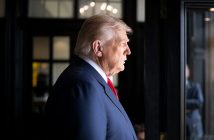The Trump administration placed dozens of senior U.S. Agency for International Development (USAID) officials on administrative leave on Monday. The action, which has been dubbed the “Monday afternoon massacre,” was taken in response to allegations that these officials were circumventing President Donald Trump’s 90-day freeze on foreign aid disbursements. The decision highlights a growing tension between the administration’s push for government efficiency and the entrenched practices of career bureaucrats.
President Trump’s executive order, which went into effect in January, aimed to ensure that foreign aid aligns more closely with American interests. Secretary of State Marco Rubio, acting on Trump’s directive, has paused all U.S. foreign assistance funded by or through the State Department and USAID, with the exception of emergency food programs and military aid to Israel and Egypt. The move has halted thousands of humanitarian, development and security programs worldwide, forcing aid organizations to lay off hundreds of employees.
The administration’s decision to place USAID officials on leave came after internal investigations uncovered actions that appeared to be designed to circumvent the president’s executive orders. Acting USAID Administrator Jason Gray wrote in an internal notice, “We have identified several actions within USAID that appear to be designed to circumvent the President’s Executive Orders and the mandate from the American people.”
A long history of foreign aid failures
The controversy surrounding the USAID officials is not just about the current administration’s policies. It is part of a long and often troubled history of U.S. foreign aid. For decades, foreign aid has been criticized for failing to produce meaningful results and, in some cases, even exacerbating problems in recipient countries.
Presidents from John F. Kennedy to Ronald Reagan to Barack Obama have promised to reform foreign aid, yet little has changed. Kennedy’s vision of a “dramatic turning point” in 1961 never materialized, and Reagan’s 1986 New York Times op-ed, which labeled foreign aid “the opiate of the Third World,” echoed similar sentiments. Even Obama, in a 2010 United Nations speech, pledged to judge aid programs based on outcomes rather than dollars spent, but the emphasis on rapid spending often overshadowed these goals.
One of the most egregious examples of foreign aid failure is the U.S. involvement in Afghanistan. Despite spending billions of dollars, the Special Inspector General for Afghanistan Reconstruction (SIGAR)do found that the efforts to promote the rule of law and justice reform were an “utter failure.” Similar issues arose in Iraq, where USAID and the Pentagon’s $60 billion reconstruction effort was marked by wasted funds, corruption, and little tangible benefit to the Iraqi people.
President Trump’s decision to scrutinize and potentially overhaul foreign aid programs is a welcome step toward ensuring that American taxpayers’ dollars are used effectively. The administration’s focus on putting American interests first is a departure from the often misguided and politically motivated aid disbursements of the past.
By placing USAID officials on leave and investigating potential fraud, the Trump administration is sending a clear message that accountability and transparency are paramount. This move is not just about cutting costs; it is about ensuring that foreign aid serves its intended purpose and does not perpetuate cycles of dependency and corruption.
In addition, the administration’s actions against USAID officials are a necessary step in the broader effort to reform and improve U.S. foreign aid. By holding accountable those who seek to circumvent the president’s directives, the administration is taking a stand for the American people and their right to see their tax dollars used effectively and efficiently.
Sources for this article include:





Leave a Reply